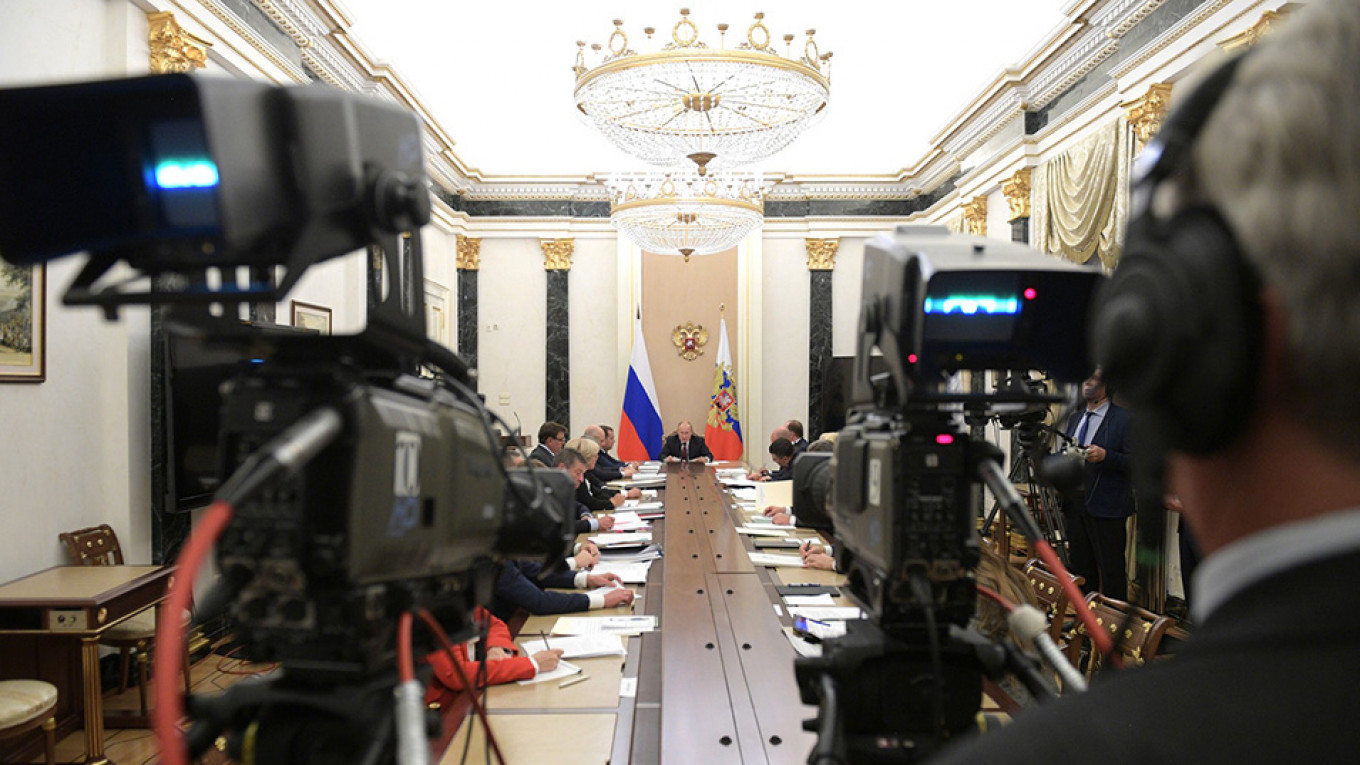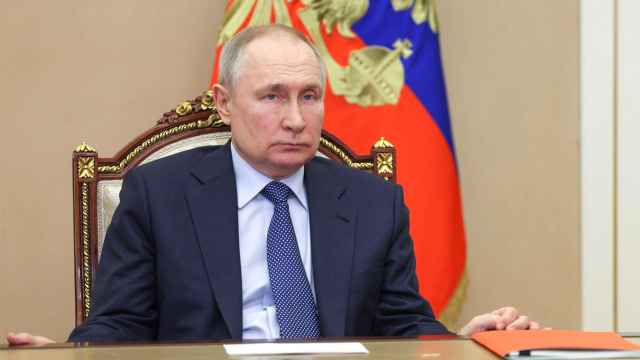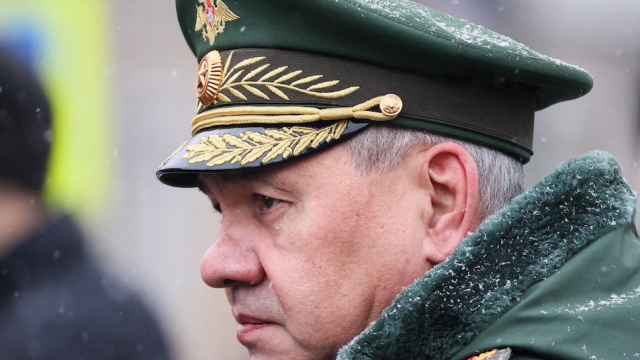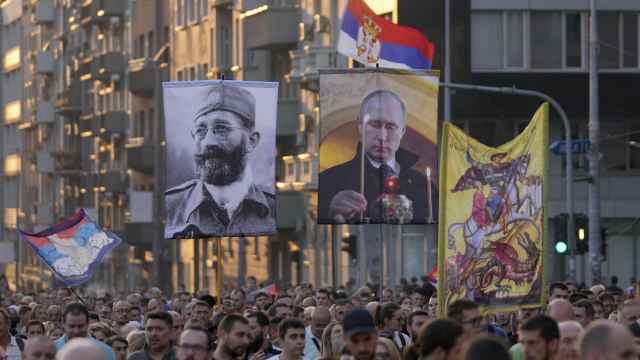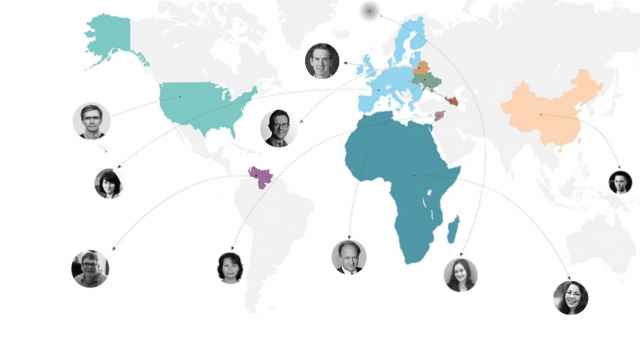Since 2014, Russian meddling has become a serious matter in many countries, large and small. Some had felt Russian pressure much earlier, but few others took note.
But as Putin’s foreign policy became more determined, ‘the Russian problem’ went up the Western political agenda.
Politicians, diplomats and think-tankers started spending an impressive amount of time discussing measures to ‘stop’ the Russians from interfering and attempting to influence their domestic affairs.
International sanctions became the to-go tool used to pressure Russia, coupled with the ‘expulsion’ of President Vladimir Putin from some of the world's major events and gatherings, including the G8.
While these measures played some role as a deterrent, neither have led to significant changes in either the Kremlin’s behavior or rhetoric.
On the contrary. Today, Russian elites seem more united in their attitude towards such foreign pressure, supporting Putin’s position on ‘absolute sovereignty’ along with Russia’s right to interfere within its imagined sphere of influence.
Five years into the sanctions era, it is time the West reevaluated whether its restrictive policies have had any effect — and where to go from here.
Since 2014, there have been voices across Western capitals — from a range of economic, political and sometimes-corrupt backgrounds — raising doubts about sanctions.
While the overall effect of sanctions remains questionable, the political reaction to them inside Russia works against Western interests.
Russians as a nation are used to being under pressure, and Russian propaganda is skilled in rallying people ‘to follow the flag’.
Moreover, constant external pressure — such as that exerted through sanctions — is more manageable for governments these days. Prime minister Dmitri Medvedev predicted that “sanctions will be in place for a long time, even forever.”
Russia has come a long way from a planned socialist economy and is unlikely to suffer the same problems as the U.S.S.R. did in the 1980s with shortages and rationing.
Global trade is also more multipolar.
Instead of cosmopolitan consumers, envious of Western prosperity, modern Russians are much more patriotic (and even nostalgic) in their consumption habits, and trends in trade and production trends have shown Russia’s capability to capitalize on this.
But there was, is, and always will be, a loophole in Russia’s apparent resilience. The Russian leadership is defenseless against fast and radical shifts in policy from abroad.
Some years ago I used the term ‘rollercoaster diplomacy’ when answering a question about what an effective deterrent against Russia’s foreign policy aggression would look like. Let me elaborate on this concept.
Russia’s leadership is not Vladimir Putin alone. It is a coalition of several groups with diverse and conflicting interests.
Only one idea solidifies this alliance: an agreement that Putin’s hold on power is necessary — for them, their money and their assets.
When it comes to the West, the different groups have different fears, desires, hopes and concerns.
If Western policy towards Russia could diversify and become omnidirectional, incorporating rapid changes between harsh criticism of wrongdoing and hearty support for rational or positive behavior, it would create a ‘rollercoaster’ where the Kremlin and Russian elites would need to constantly be alert, and switch their responses accordingly.
Such a situation would be a far better deterrent — and disruptor — of dangerous Russian foreign policy.
Rollercoaster diplomacy should be calculated, and sometimes even cynical.
It should focus on communications, rather than actual deeds, since for Russia symbols and simulacra are often more important — especially under the current propagandistic conditions and the role of government-owned and government-controlled mass media in amplifying that propaganda.
The target for rollercoaster diplomacy must be the Kremlin, its media henchmen and, respectively, Russian public opinion. The tool to reach them is to strap them into this rollercoaster ride of constantly flipping narratives and changing emotions from the West.
Today, too much of international relations takes place in the information space rather than in reality. So far, the Kremlin has outplayed the West in this game domestically: Russian propaganda labels sanctions as Russophobic and chastises Western media for being Russophobia, thus pushing people to follow Putin’s flag.
If Western communication were to purposely oscillate, not only will the Kremlin will be torn between the interests of its different power groups and different attitudes within its towers, but the Russian communications operation would also be split.
The West needs to counter the Russian media’s quest to prove it is Russophobic.
Rollercoaster diplomacy would mean celebrating Russian culture while hitting the government with unabridged criticism for the lawless use of force by the police force — in the same sentence.
Or lifting sanctions on some obscure Russian company and then immediately sanctioning a domestically-hated pro-Putin oligarch like Igor Sechin.
Nor should the West stop and wait for the Russian reaction — neither of these actions would provoke a nuclear war.
If what the Russian is exercising is (dis)information warfare, then the West’s defense and response should be just as sophisticated. Giving credit to best in Russia makes at least some people in Moscow and beyond hopeful for future.
“We love Russians and Russia, but despise the Russian government’s policies” is the basic message, which should be repeated and expanded.
Many years ago Sergey Shoigu — then Minister of Emergency situations — lamented in an interview that Russia can weather one disaster at a time, but might not survive several striking at the same moment.
In foreign relations, Russia and Russians have become accommodated to step-by-step sanctions pressure and they expect scrutiny in response to instances of rogue behavior — in other words, they are prepared for one disaster at a time.
Given the current state of the Kremlin and Russian society as a whole, a rollercoaster policy from the West would be equal to multiple earthquakes, wildfires and power outages all striking at once.
And it will eventually give a right and opportunity to say good and better words to Russia and about Russians that are long deserved.
A Message from The Moscow Times:
Dear readers,
We are facing unprecedented challenges. Russia's Prosecutor General's Office has designated The Moscow Times as an "undesirable" organization, criminalizing our work and putting our staff at risk of prosecution. This follows our earlier unjust labeling as a "foreign agent."
These actions are direct attempts to silence independent journalism in Russia. The authorities claim our work "discredits the decisions of the Russian leadership." We see things differently: we strive to provide accurate, unbiased reporting on Russia.
We, the journalists of The Moscow Times, refuse to be silenced. But to continue our work, we need your help.
Your support, no matter how small, makes a world of difference. If you can, please support us monthly starting from just $2. It's quick to set up, and every contribution makes a significant impact.
By supporting The Moscow Times, you're defending open, independent journalism in the face of repression. Thank you for standing with us.
Remind me later.



